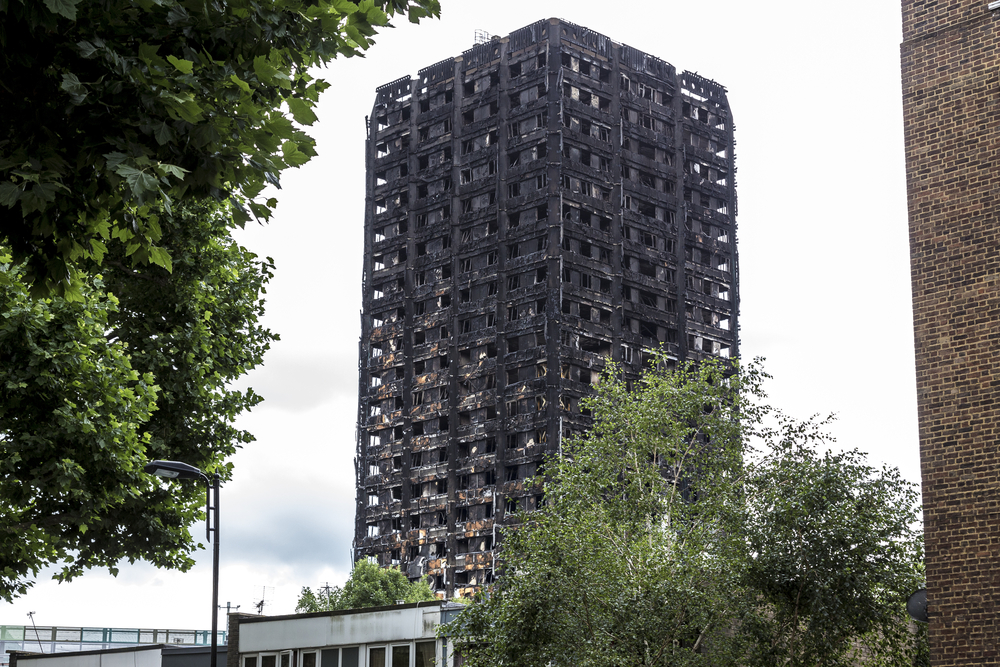Industry responds to commencement of Fire Safety Act
- May 20, 2022
- 8:26 am


Iain Hoey
Share this content
The UK government’s Fire Safety Act 2021 and the Building Safety Act 2022, which have both now come into force, have been met with mixed response from the British fire and safety industry.
The National Fire Chiefs Council (NFCC) welcomed he publication of the government’s White Paper on Fire Reform which focusses on driving forward reform, strengthening governance and improving talent and professionalism.
According to NFCC, the white paper and subsequent consultation provides a further opportunity to continuously improve what fire and rescue services already do and to reach into new roles and responsibilities to respond to local risk and support partner services. The reforms can build on the fantastic work already carried out every day.
NFCC Chair Mark Hardingham commented: “I am pleased to see today’s long anticipated publication of the white paper together with the announcements on fire and building safety.
“The public have great confidence and trust in firefighters and their fire and rescue services. We all carry a collective responsibility to build on that reputation in how we shape the fire and rescue service for the future – with the needs and expectations of the public at the forefront of our thinking.
“NFCC has a significant role to play in advising and delivering on reform and improvements. However, no one organisation alone holds the key – we want to work with the various fire service bodies to inform and implement further improvements.”
The Council said it would now respond to the consultations after exploring the recommendations in detail with fire and rescue services.
A perfect storm
The Fire Industry Association has said the new legislation will create a ‘perfect storm’ for fire risk assessors, as they will now face additional challenges when it comes to satisfying new legal requirements designed to meet fire safety competency standards.
The association raised the issue thattThe legislation requires that a building’s external walls be considered as part of any fire risk assessment, which has been much debated by the industry. The Building Safety Act goes further still, it said, placing a clear duty on ‘Accountable Persons’ and ‘Responsible Persons’ to confirm the competency of any fire risk assessor whom they appoint to assist them in undertaking a building fire risk assessment.
It also noted the lack of detailed definition around the term ‘competent’, which then puts these ‘duty holders’ under considerable pressure to make the correct choices.
Dennis Davis, executive officer at the Fire Sector Federation, said: “Those accountable for building and fire safety, including fire risk assessors operating without clearly demonstrable competency, need to make sure they’re ready now.
“They must fully understand the implications of demonstrating compliance with their obligations under the new legislation. Using existing third party assurance schemes that demonstrate fire risk assessors are competent is a practical way forward for clients. Joining such schemes or engaging with those organisations developing standards will allow qualified professionals to show they’re competent. It’s a way forward for contractors.”
He added: “We need to face up to these challenges if we are to avoid a ‘perfect storm’ in the fire risk assessor sector which could undermine fire safety in our buildings.”
‘An attack on workers’ rights’
The Fire Brigade Union called highlighted the white paper’s review on pay and move to operational independence of Chief Fire Officers. Matt Wrack, FBU general secretary called it ‘an attack on workers’ rights by undermining collective bargaining and a proposal to remove frontline firefighters’ voices.
He said: “The narrative set out in the white paper on the fire service’s response to the pandemic is one firefighters will not recognise. Firefighters, through their union, negotiated a contract which kept them safe and allowed important work to protect the public to take place. Before this agreement, Covid positive firefighters were deployed to doorsteps – not something certain chief fire officers can be proud of.
“We’re proud of how the tripartite agreement was achieved through our long-standing arrangements, and attempts to belittle it are false and insulting.
“The vast bulk of this white paper does not relate directly to Grenfell recommendations. It is unclear why the government is trying to paint this picture. Instead of listening to frontline firefighters, the government appears to have listened only to the anti-union voice of the politically motivated, including outgoing fire inspector Tom Winsor, and fire bosses. We look forward to working with the government to address these proposals and making sure that frontline firefighters are heard.
“The union has never opposed clarifying the role of a firefighter and in some instances, expanding that role, and we have tried to have these discussions with ministers for over a decade. It is ministers who have failed to answer these questions. It is imperative that any changes are properly negotiated and discussed with frontline firefighters – it is their say that should matter most.
“The proposals on governance suggests that we could see more Police Fire and Crime Commissioners. Throwing fire in with police means fire and rescue services do not receive enough scrutiny. Furthermore police and fire are very different functions and there is a vital need to maintain the neutrality of fire and rescue services in the public perception. If this breaks down it will make the work of fire and rescue services in communities far more difficult.”



